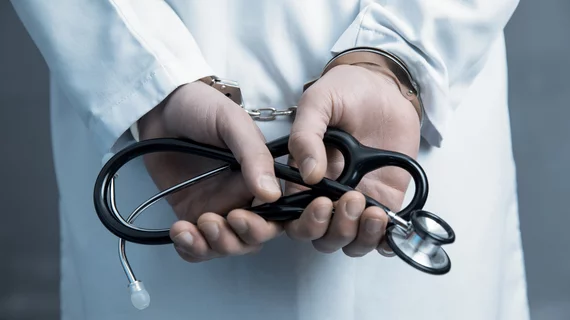Doctor gets prison for prescribing unnecessary opiates
A doctor in North Carolina has been sentenced to more than two years in prison after pleading guilty to one count of healthcare fraud and one count of money laundering, the U.S. Department of Justice (DOJ) confirmed in an announcement.
Citing court documents, the DOJ said Wendell Lewis Randall, MD, the 72-year-old owner of the National Institute of Toxicology (NIT), prescribed opioids to his patients “without regard to whether such prescriptions were medically indicated.”
Further, Randall was accused of billing Medicare and Medicaid for unnecessary tests, mainly urinalysis drug screenings conducted during every patient visit. NIT had an on-site lab to examine the results but billed government health programs for the maximum amount.
Prosecutors said the incidents occurred between August 2018 and December 2021, resulting in Randall receiving more than $753,446 from Medicare and $1.29 million from Medicaid, despite the tests being medically unnecessary.
Randall also reportedly used $97,000 of those proceeds to “make several large purchases, including a building on property near his home,” the DOJ added.
“This health care provider stole taxpayer dollars for his own profit while he worsened our state’s opioid crisis,” North Carolina Attorney General Jeff Jackson said in a statement. “Doctors have a legal and ethical responsibility to provide the quality health care that patients need. When they don’t, our office and our federal and state partners will hold them accountable.”
Randall has been ordered to pay more than $2 million in restitution, in addition to his 30-month prison sentence. He was previously convicted of crimes in Virginia, for which he is serving 18 months behind bars.
The two sentences will be served consecutively, the DOJ added.

